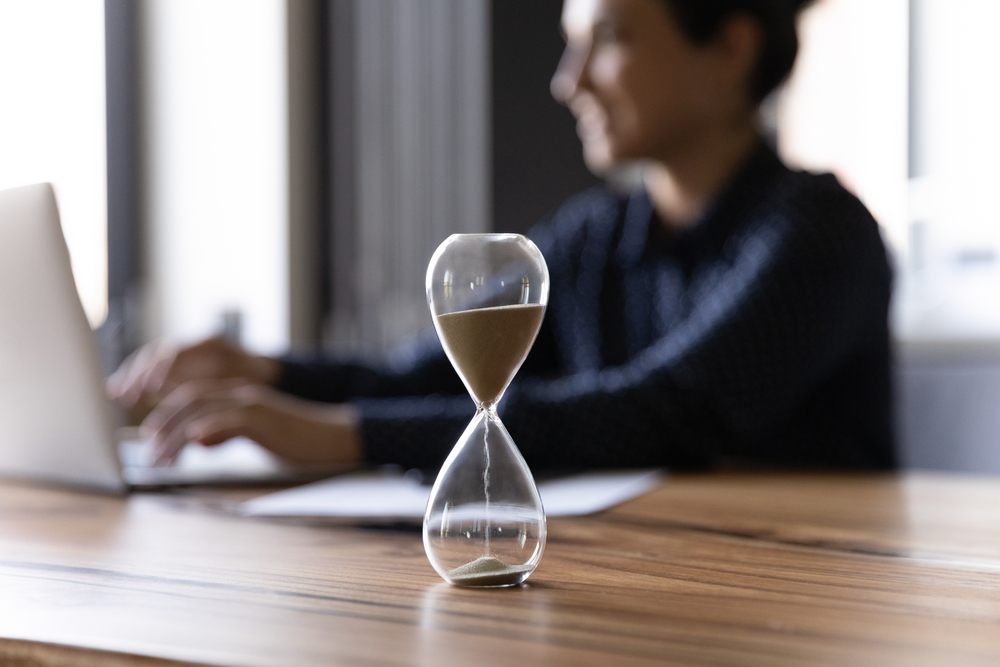
Get Paid to Share Your Expertise
Help shape the future of business through market research studies.
See Research StudiesFollowing Omicron’s impact on office return plans, many executives are finding themselves back to their work-from-home routines for a third calendar year.
Unlike the bootstrapped WFH solutions a lot of folks were forced to concoct at the start of COVID, today, we’ve more or less got the groove down — and that’s not always to our benefit. Some work-from-home routines that we adopted at an earlier point in the pandemic, for instance, might still be with us simply out of habit. Meanwhile, other healthy practices we made a point of doing in 2020 may have, by now, slipped through the cracks of our busy work days. (When’s the last time you, say, took a midday walk? That’s what we thought.)
With more work-from-home days inevitably ahead of us, it’s time we revisited our routines in order to free them of 9-to-5 habits and behaviors that aren’t actually serving us. To that end, we heard from executives and company leaders who’ve worked from home since pre-pandemic times for the habits they’ve kept in their routines, for a reason.
1. Stick to a dedicated workspace.
You’re tired of having the same view every day. And we get that. But maintaining the structure of a dedicated work area — one you can effectively lock up and leave at the end of the work day — is still wise, Ernests Embutnieks, CEO at perfectgift4, said.
“As tempting as it may be to watch TV while working in your living room, it’s not recommended,” he said. “It’s not necessary to have a whole room dedicated to your job, but it should be a distraction-free area that isn’t utilized for anything else. Arriving at your designated home office early in the day sets the tone for attentiveness and concentration the rest of the day.”
2. Maintain regular working hours.
This doesn’t mean disallowing yourself the flexibility to, for instance, run an afternoon errand. But, similar to having a dedicated workspace, it does mean building some structure into your work day, Gerrid Smith, Chief Marketing Officer at Joy Organics, said.
“Set a precise time for the beginning and end of your day, and stick to those periods,” Smith said. “Instead of starting at a vague time, dictated by procrastination and distraction, starting at 8 a.m. sharp will provide you with a definite beginning point… Working from home may lead to a blurring of the borders between your personal and professional lives, which can be detrimental to your emotional well-being.”
3. Keep a daily to-do list, and actually use it.
Better yet, write out your list for the following day at the end of the work day. That way, you’ll waste no time in the morning trying to figure out what your first priority should be, Andrei Kurtuy, CCO of Novorésumé, said.
“When you work from home, keeping a daily to-do list helps keep you on track and provides you with an objective measure of your productivity,” he said. “At the end of the day, go through your to-do list and see what you got done. You’ll be able to assess how well you’re doing and establish new goals for the rest of the day.”
4. Allow yourself some rewards.
Working from home, you’re effectively the one calling the shots as to what your day looks like. Give yourself permission to add a little pleasure into that, Kamyar K.S, CEO of World Consulting Group, said.
“I’ve developed a habit of treating myself every Wednesday,” he said. “This habit was inspired by the Swedish tradition of Lillördag, or Little Saturday, meaning I always treat myself during lunchtime and finish my day 20 minutes earlier. It’s not much, but it certainly gets rid of my hump!”
5. Start your day with a small, easily achievable task.
For Mike Grossman, CEO of GoodHire, that simple task is making his bed. However small an act, successfully checking a box first thing in the day comes with positive spillover benefits, he says.
“It’s this first positive decision early in the morning which sets a positive precedent for the rest of the day ahead,” he said. “As small and insignificant as it may seem, it can have a reverberating impact on your productivity. By making your bed, you’ve just accomplished your very first task of the day. This motivates you to do another task, and then another. Before long, you’ll finish the day feeling proud of everything you achieved.”
6. Turn your hour-long meetings into 45-minute ones.
Those 15 minutes you’ve spared can do a lot toward bettering your productivity and your sense of well-being, Violette de Ayala, CEO of FemCity, said.
“I try to schedule meetings in brackets of 30 to 45 minutes so it gives me time to walk outside or just have ample time to start the next meeting,” she said. “This has helped me so much in giving myself a bit of freedom and unplanned mental space to recharge and regroup in brackets of time throughout the work day.”
7. Turn off notifications.
Few things engender distraction as much as notifications do — which is why Tomek Młodzki, CEO of PhotoAiD, won’t start a work day with them on.
“Getting a message always makes me feel like I should respond immediately,” he said. “Thus, every message disturbs me from work. To stay focused on my tasks, I turn off notifications and reply to employees and managers at a scheduled time.”
8. Make a point of walking “to work” still.
There’s something to be said for the burst of energy and focus that getting out the door and going to an office can give you — which is why Mark Daoust, CEO of Quiet Light, made walking to work part of his WFH routine.
“One thing I discovered early on is that I missed my walk-to-work routine; it helped me prepare for the day,” he said. So, I incorporated into my daily routine a walk to work. Every morning I walk around the block, and arrive at ‘the office.’ The walk helps me set a boundary, puts me in a different headspace and is a great way to get ready for a day at the office. I’m more energized and psychologically prepared to work. I also try to end my workday at the same time every evening, helping me to delineate work and home.”
Sign Up For The Free Webinar: 5 Mistakes Even Smart Leaders Make When Managing Hybrid Teams

 Liv McConnell
Liv McConnell